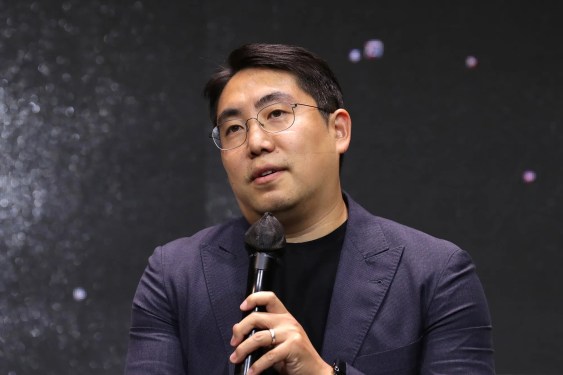Since AI tools became mainstream, filmmakers, writers, and actors have been trying to determine if these technologies can genuinely assist creativity or if they might replace humans. However, a larger concern exists before the debate takes over. AI cannot function without enormous data centers and significant energy infrastructure.
A new joint venture, named Utopai East, aims to address this need by developing infrastructure specifically for producing movies and TV shows with AI. The venture is held equally by the investment firm Stock Farm Road and the AI film and television production company Utopai Studios.
Stock Farm Road is contributing capital to the joint venture, along with creative expertise and industry contacts. The firm was co-founded by Brian Koo, the grandson of LG Group’s founder Koo In-hwoi, and Amin Badr-El-Din, the founder and chief executive of BADR Investments. Utopai Studios is providing the technology, workflow, and infrastructure.
The project will also involve co-producing film and television projects and expanding access to Korean intellectual property for international audiences. Production will begin using existing infrastructure, and the company expects the first content from this collaboration to be released next year, according to Ceilica Shen, co-founder and CEO of Utopai Studios.
In the short term, using AI will be primarily about lowering costs and increasing efficiency, Brian Koo told TechCrunch. Beyond that, he expressed excitement about the new possibilities AI opens up. As they engage with creators, they are exploring what entirely new things can become possible. Some of their early focus is on creators in Korea.
Koo compared the situation to when short-form content was a novelty, noting opportunities for fresh approaches. They are working not only with established cinema directors but also with young, innovative creators who are not limited to traditional movies.
But novelty alone will not ease the concerns of people working in the entertainment industry or those consuming the content. AI could one day replace people in creative roles like acting, performance, and writing, yet it often lacks the depth, nuance, and emotional resonance of human storytelling. This has sparked a broader debate about the value of human creativity in an era when machines can mimic, but not fully replicate, the human touch.
Shen and Koo maintain that their use of AI is only aimed at improving existing processes. Shen stated that from the beginning, their focus was never on automation. Their workflow is designed to work alongside filmmakers, not in place of them. They still need writers to write, directors to direct, and actors to perform.
Shen added that every model and every dataset used is fully licensed and contractually approved, ensuring the technology respects the creators whose work makes filmmaking possible. Koo said they want creators to understand that AI can expand their creative potential rather than compete with them. It can help bring their dreams to life, giving them the freedom to fully explore their creativity without worrying that AI will replace them.
Koo also noted that typically, content and intellectual property grow incrementally, but with the right technology, especially AI, there is potential for exponential growth. He believes this is not about AI replacing people, but about the massive value it can create for audiences, creators, and engineers alike.
This deal follows Stock Farm Road’s recent agreement with the Jeollanam-do Province government to build a 3-gigawatt AI data center in South Korea. Koo said the data center is part of their larger mission to build the backbone for the next generation of intelligence-driven industries. Beyond entertainment, they are focused on areas such as manufacturing, energy-to-information, AI, and quantum computing, which are all interconnected fields requiring the same kind of infrastructure.
This data center will serve as the foundation for everything Utopai East is developing. It will include complete AI infrastructure for entertainment content, spanning data management, creative intelligence, production, and distribution.
While the joint venture’s financial details were not disclosed, the capital is coming from multiple channels. These include Stock Farm Road’s investment vehicles, global sovereign and institutional investors, and industry partners in film and entertainment.
The joint venture will start by making Korean content but aims to expand to other parts of Asia eventually. Shen noted that Japan is always a great market, making it a natural starting point for expansion. She also sees significant potential in China and Thailand.

